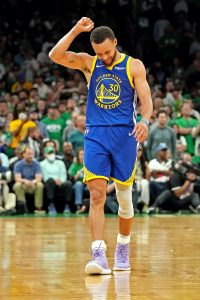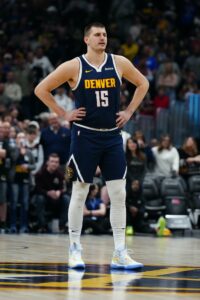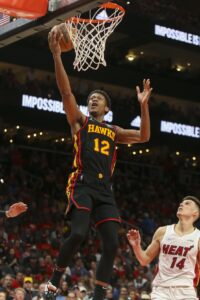When I previewed the Hornets‘ offseason in May, I speculated that it would be a busy summer in Charlotte, with James Borrego‘s ouster as the team’s head coach representing the first of many personnel changes likely to occur off and on the court.
As I outlined at the time, the decision to dismiss Borrego suggested that Hornets leadership wasn’t satisfied with the team’s gradual improvement (from 23-42 to 33-39 to 43-39 over the last three seasons) and was preparing to take a big swing to ensure the club was closer to contention in 2022/23.
Instead, Charlotte has been one of the least active teams of the offseason.
The Hornets have inked just one veteran free agent to a standard contract, re-signing RFA forward Cody Martin. They made two trades, but neither brought back a veteran player. The only new player the club has added to its projected 15-man regular season roster so far is former Duke center Mark Williams, the No. 15 overall pick in the draft, who seems unlikely to play a huge role as a rookie.
There are a few possible explanations for the Hornets’ relative inactivity. One is that the club simply hasn’t found many opportunities it liked and continues to bide its time, waiting for an opportunity to make a splash on the trade market. Charlotte was, after all, one of the potential suitors linked to Donovan Mitchell before he was dealt to Cleveland.
Another explanation is that the Hornets aren’t prepared to make major changes to their roster before they see what new head coach Steve Clifford can get out of the current group. If the front office believes that Borrego simply wasn’t maximizing the talent on the roster, it makes sense not to do anything drastic until getting a sense of how the team looks under Clifford.
A third possible explanation is that the domestic violence charges levied against restricted free agent Miles Bridges forced the Hornets to rethink their entire approach to the offseason.
Bridges was one of Charlotte’s two most important players last season, along with LaMelo Ball. Now that his NBA future is up in the air as his legal case plays out, the Hornets may have simply decided that it’s not in their best interest to go all-in on their push for the playoffs, given the extent to which Bridges’ potential absence limits the team’s ceiling.
There’s still a good deal of talent on this Charlotte roster. Ball is a rising star; Gordon Hayward and Terry Rozier are quality starters; Cody Martin, P.J. Washington, Kelly Oubre, and Mason Plumlee are solid rotation pieces; James Bouknight, Kai Jones, Jalen McDaniels, and Williams are among the intriguing youngsters who could prove capable of greater roles.
But Bridges will be a big loss if he doesn’t re-sign or if he misses most or all of the season, either on administrative leave or serving a suspension. On top of that, the Hornets are still missing an impact player in the frontcourt who is capable of anchoring the defense and being a pick-and-roll partner to Ball on offense — Williams has the potential to become that player, but the 20-year-old can’t be relied upon to be that guy right away.
We want to know what you think. What’s the next move in Charlotte? Has Bridges played his last game in a Hornets uniform? How can the team continue to make forward progress after making the play-in game in each of the last two seasons?
Head to the comment section below to weigh in with your thoughts!
 The Designated Veteran rule allows a player with between seven and nine years of NBA experience – who would normally qualify for a starting salary worth 30% of the NBA’s salary cap on a new free agent contract or extension – to become eligible for a salary worth up to 35% of the cap if he meets one of the following requirements:
The Designated Veteran rule allows a player with between seven and nine years of NBA experience – who would normally qualify for a starting salary worth 30% of the NBA’s salary cap on a new free agent contract or extension – to become eligible for a salary worth up to 35% of the cap if he meets one of the following requirements:

 Hunter clearly worked hard on his game entering year two, as he got off to a great start, averaging 17.9 PPG and 5.6 RPG on a stellar .517/.375/.877 (.646 true) shooting line in 17 games (33.3 MPG). Unfortunately, things went downhill from there, as right knee discomfort and swelling ultimately led to arthroscopic surgery and multiple setbacks, causing Hunter to miss all but five games the rest of the regular season.
Hunter clearly worked hard on his game entering year two, as he got off to a great start, averaging 17.9 PPG and 5.6 RPG on a stellar .517/.375/.877 (.646 true) shooting line in 17 games (33.3 MPG). Unfortunately, things went downhill from there, as right knee discomfort and swelling ultimately led to arthroscopic surgery and multiple setbacks, causing Hunter to miss all but five games the rest of the regular season.